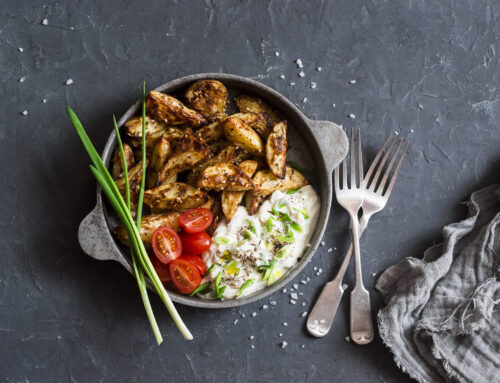In Greece and Cyprus, food serves as a vital link between past and present, connecting people to their cultural heritage through the flavors, techniques, and rituals that have defined these Mediterranean societies for millennia. As a living expression of history, tradition, and shared values, food plays a crucial role in preserving and celebrating the rich cultural legacies of Greece and Cyprus. In this guide, we explore the role of food in safeguarding cultural heritage in these regions, examining the ways in which culinary practices help to maintain, transmit, and revitalize the cultural identities of Greece and Cyprus.
Food as a Bridge to the Past
Ancient Culinary Traditions
The culinary traditions of Greece and Cyprus have their roots in ancient history, with ingredients such as olives, grapes, and grains forming the basis of their respective cuisines. By cultivating and consuming these ingredients, modern Greeks and Cypriots maintain a tangible connection to the civilizations that flourished in the Mediterranean region thousands of years ago. This continuity between past and present helps to preserve the rich culinary heritage of Greece and Cyprus, ensuring that their ancient foodways remain a vital part of their contemporary cultures.
Traditional Recipes and Techniques
In both Greece and Cyprus, traditional recipes and cooking techniques are passed down through generations, providing a direct link to the culinary wisdom and knowledge of their ancestors. Dishes such as moussaka, souvlaki, and tava are not only delicious and nutritious but also serve as living expressions of the rich culinary legacies of Greece and Cyprus. By preparing and enjoying these traditional dishes, modern Greeks and Cypriots help to preserve the knowledge and skills of their forebears, ensuring that their culinary heritage remains a vital part of their cultural identities.
Food and Cultural Memory
Antioxidants are compounds found in certain foods that help protect our cells from damage caused by free radicals. Free radicals are unstable molecules that can cause damage to our cells and DNA, leading to chronic diseases like cancer, heart disease, and Alzheimer’s disease. Traditional Greek cuisine includes many antioxidant-rich foods that can help protect our cells from this damage.
Food in Rituals and Celebrations
Food plays a central role in the rituals and celebrations of Greece and Cyprus, serving as a powerful reminder of the values, beliefs, and traditions that have shaped their societies. From Easter feasts to Name Day celebrations, food serves as a medium through which cultural memory is transmitted and reinforced, helping to forge and maintain connections between individuals and their shared heritage.
Oral Histories and Storytelling
The transmission of culinary knowledge in Greece and Cyprus often takes the form of oral histories and storytelling, with recipes, techniques, and food-related memories shared between family members and community members. This oral tradition not only helps to preserve the culinary heritage of Greece and Cyprus but also fosters a sense of continuity and connection between generations, ensuring that their foodways remain a living and evolving part of their cultural identities.
The Revival and Promotion of Culinary Heritage
Food Festivals and Celebrations
Food festivals and celebrations in Greece and Cyprus provide important opportunities to showcase and promote their culinary heritage, both within their own societies and to the wider world. Events such as the Cherry Festival in Siatista, Greece, and the Zivania Festival in Cyprus celebrate the unique flavors and traditions of these regions, helping to ensure that their culinary legacies are preserved and appreciated by future generations.
Culinary Tourism
Culinary tourism plays an increasingly important role in preserving the cultural heritage of Greece and Cyprus, with visitors from around the world seeking to experience the authentic flavors and traditions of these Mediterranean destinations. By promoting and celebrating their culinary heritage, Greece and Cyprus not only attract tourism revenue but also help to ensure that their foodways remain a vital and cherished part of their cultural identities.
The Role of Food in Cultural Revitalization
Modern Greek and Cypriot Cuisine
Contemporary Greek and Cypriot cuisine is characterized by its creativity and adaptability, with modern chefs and food enthusiasts drawing on their culinary heritage while also embracing global influences and techniques. This fusion of traditional and contemporary elements not only showcases the versatility of Greek and Cypriot cuisine but also serves as a powerful statement of cultural pride and identity. By reinterpreting and reinventing their culinary traditions, modern Greeks and Cypriots help to ensure that their foodways remain relevant and dynamic, reflecting the evolving tastes and aspirations of their societies.
Food Education and Preservation Initiatives
In both Greece and Cyprus, efforts are being made to educate the public about their culinary heritage and the importance of preserving their traditional foodways. Cooking classes, workshops, and demonstrations provide opportunities for individuals to learn about and engage with the flavors, techniques, and histories that define their respective cuisines. These educational initiatives not only help to safeguard the culinary heritage of Greece and Cyprus but also foster a deeper appreciation of the cultural significance of their foodways.
The role of food in preserving cultural heritage in Greece and Cyprus is multifaceted and deeply ingrained, with culinary practices serving as a vital link between past and present, tradition and innovation. Through the cultivation and consumption of traditional ingredients, the transmission of culinary knowledge, and the celebration and promotion of their foodways, the people of Greece and Cyprus help to ensure that their rich culinary legacies remain a cherished and enduring part of their cultural identities. By appreciating and engaging with the diverse flavors, techniques, and traditions that define the culinary landscapes of Greece and Cyprus, we can gain a deeper understanding of the vital role that food plays in preserving and celebrating the cultural heritage of these Mediterranean societies.

